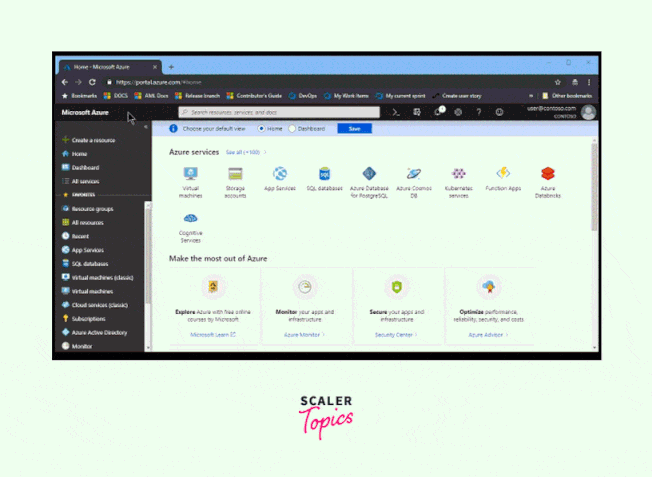Azure Cognitive Search
Azure Cognitive Search is a powerful cloud-based technology that specializes in offering scalable and effective search capabilities for applications. It excels at making it possible to develop strong search indexes and makes data retrieval easy, even if its main goal is not to turn raw data into insights. This solution, which is integrated with Microsoft Azure, enables users to import data from many sources and supports capabilities like sorting, filtering, and full-text search. Its primary strength is in improving search capabilities, providing businesses with an advanced tool to accelerate the information retrieval process and enable users to locate relevant data.
Core Features of Azure Cognitive Search
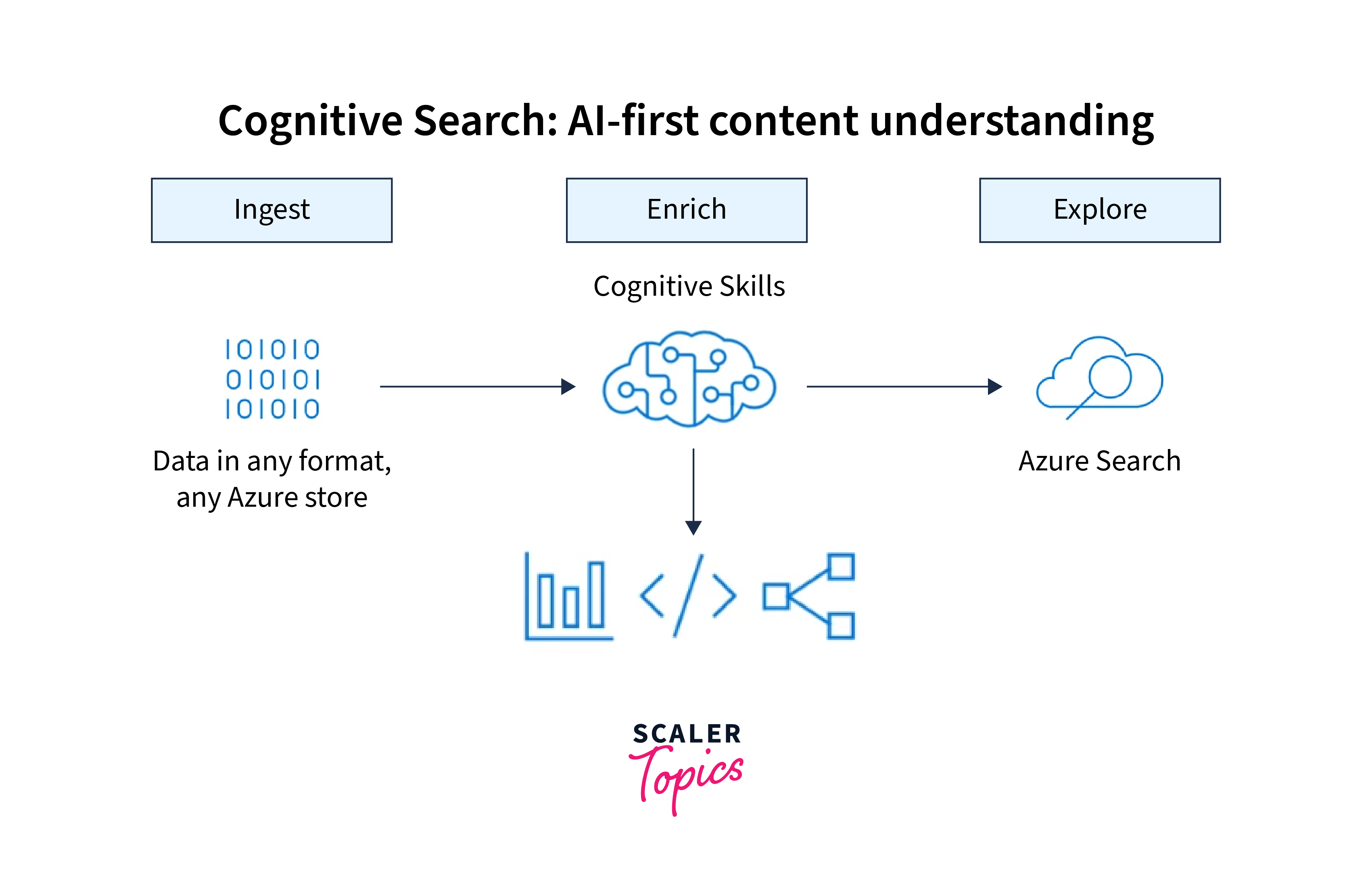
Let us now look at the core features of the Azure Cognitive Search
-
Data Transformation: Azure Cognitive Search is a powerful tool that rapidly converts raw data into valuable insights.
-
Versatile Ingestion and Indexing: Azure Cognitive Search is efficient at ingesting and indexing a wide variety of content, including text, pictures, and even complex data structures. This functionality offers complete coverage for various data formats, increasing the platform's adaptability.
-
Advanced Search Capabilities: The search capabilities extend beyond simple keyword matching. It uses advanced algorithms to deliver accurate and relevant results.
-
Integration with Azure Services: The search service interface easily integrates with other Azure services, resulting in an easy workflow and improved overall efficiency of the solution.
-
Scalability: Azure Cognitive Search is scalable, which allows it to handle growing datasets and makes it an appropriate choice for businesses of all sizes, adjusting to changing data requirements over time.
-
Multilingual Support: The search service supports many languages, allowing users to create a global search experience. This function plays an essential role for organizations with a wide range of language needs since it provides a globalized search solution.
-
Faceted Navigation: The solution offers several navigations that enable users to filter results based on certain criteria. This improves not just the accuracy of search results, but also the entire user experience by giving a more straightforward approach to browse data.
-
AI-Powered Features: AI-powered capabilities like Optical Character Recognition (OCR) and sentiment analysis are included in Azure Cognitive Search. These capabilities add a level of refinement to the search process, allowing users to extract important insights from the data.
-
OCR (Optical Character Recognition): It recognizes and extracts text from images.
-
Sentiment Analysis: It analyzes and determines the sentiment expressed in the content.
-
Document Retrieval: The service also excels in document retrieval because of its capacity to extract information from unstructured documents, making it useful for dealing with a wide range of content types.
Structured Data Support: Azure Cognitive Search navigates structured data with ease, allowing users to search, query, and retrieve data from well-organized datasets and databases.
Full-Text Search: Azure Cognitive Search offers powerful full-text search capabilities, allowing users to search through massive volumes of text data with ease.
Benefits of Using Azure Cognitive Search
Incorporating Azure Cognitive Search's comprehensive feature set not only simplifies search functionality but also improves overall user experience, customization, and security, making it a significant tool for enterprises looking for efficient and customizable search solutions. Let us now look at some of the benefits of the Azure Cognitive Search.
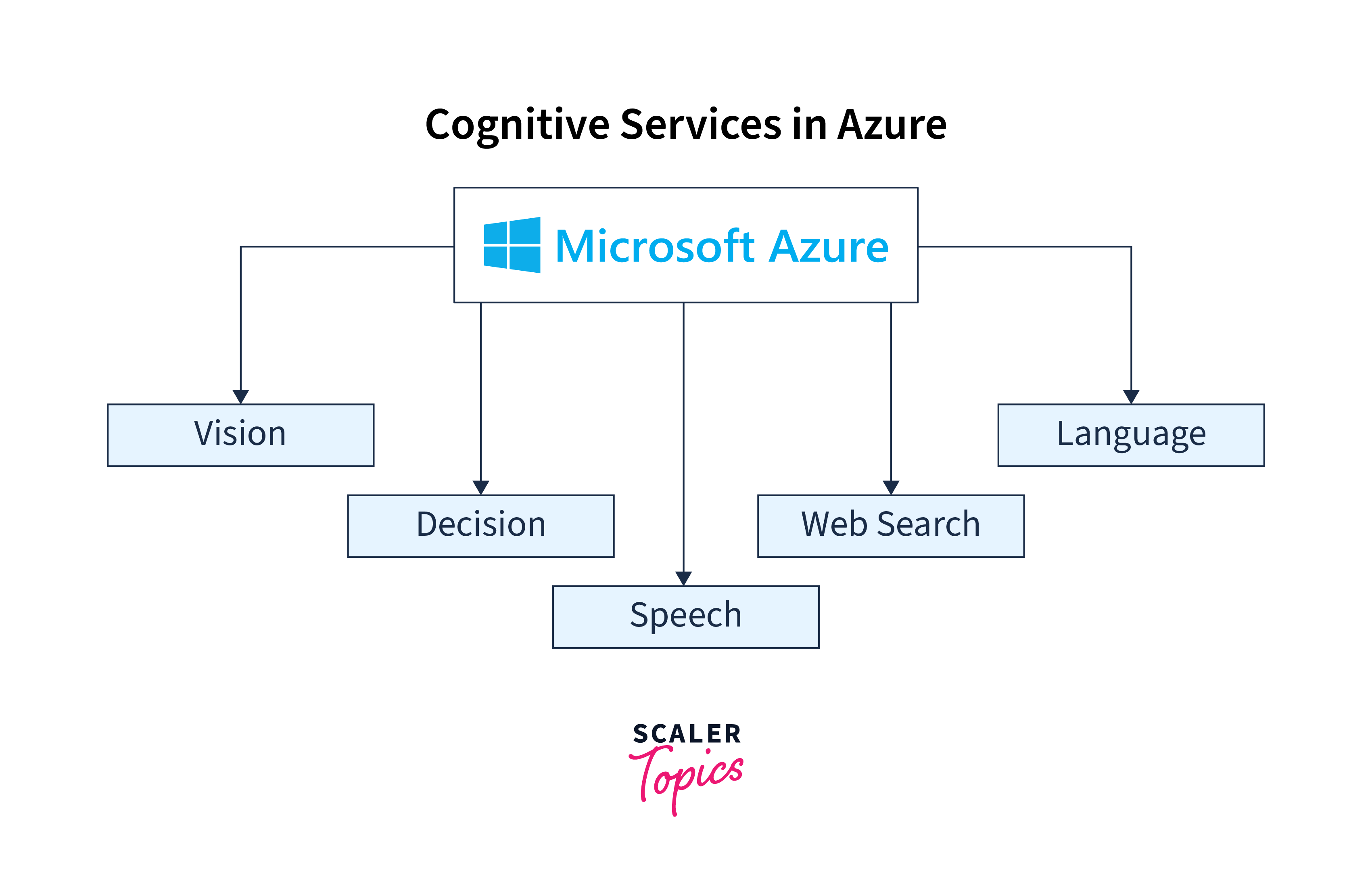
-
Enhanced User Experience: Auto-complete, recommendations, synonyms, and spell-check capabilities improve the search experience, allowing users to locate relevant information more quickly.
-
Refined Navigation and Filtering: Filtering, faceting, sorting, and paging capabilities enable users to easily filter and traverse search results, enabling a smooth study of data.
-
Customized Relevance: Organisations may modify the relevance of search results using scoring profiles and ranking algorithms, ensuring that the most relevant content is prioritized.
-
Location-Based Queries: Geo-search and geo-fencing technologies enable organizations to conduct location-based inquiries and get spatially relevant data.
-
Data Protection and Compliance: Security trimming and encryption features protect data, guaranteeing regulatory compliance and offering a safe environment for sensitive information.
Setting Up Azure Cognitive Search
Let us now look at the steps to set up Azure Cognitive Search
-
Azure Portal Access: Log in to the Azure Portal using your credentials.
-
Create a New Search Service: Navigate to Create a resource in the portal, then choose Azure Cognitive Search from the marketplace then click Create and provide the necessary information, such as subscription, resource group, and area.
-
Define Index and Fields: Once the search service is created, go to the Search Explorer in the portal. Then Define your index and fields to create the structure of your data. This is important for effective search functionality.
-
Import Data: Use the Azure Cognitive Search Indexer to import data from various sources like Azure SQL Database or Cosmos DB. Configure the indexer settings to synchronize your data with the search index.
-
Full-Text Search Configuration: Configure the search index for full-text search by setting scoring profiles and selecting fields for full-text search.
-
Integrate Search into Your Application: Obtain the search service's connection strings and integrate them into your application code, as well as implement search queries in your application to Azure Cognitive Search capabilities.
-
Monitoring and Optimisation:
- Monitor the search service metrics and query performance in the Azure Portal regularly and optimize the search index and queries for increased efficiency.
Advanced Features and Customizations
Azure Cognitive Search provides a wide range of advanced features and customizations to its users. Let us now learn about some of them listed below.
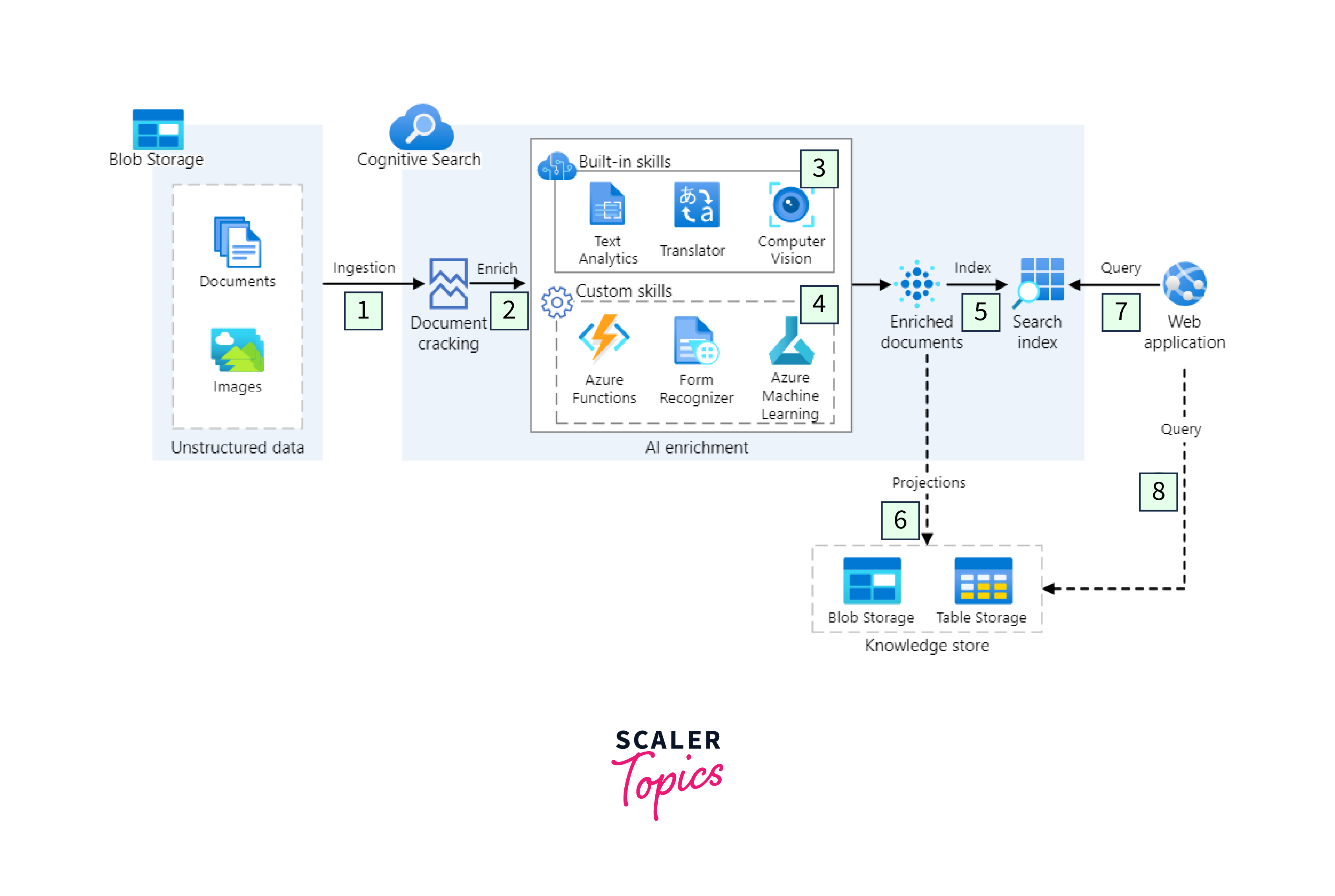
- Custom Analyzers and Tokenizers: Create custom analyzers and tokenizers to customize how text is treated during indexing and querying to fine-tune your search index.
- Skillsets for Cognitive Processing: Implement skill sets to improve material comprehension by utilizing cognitive processing capabilities such as text extraction, language identification, and sentiment analysis.
- Geospatial Search: By including geographical data in your index, offers a geospatial search (a feature that allows for the querying and retrieval of location-based information, allowing users to discover and analyze data based on geographic criteria). Define fields for location data and use geospatial queries.
- Synonyms and Similarity Scoring: Construct synonyms for phrases and alter similarity scoring to increase relevance depending on user choices to improve search results.
- Authentication and Security: Configuring authentication for your search service will ensure secure access to the search index and query capability.
Best Practices for Azure Cognitive Search Implementation
Let us now look at the best practices for the Azure Cognitive Seach Implementation.
-
Thoroughly Plan Your Index Structure: Plan the structure of an index carefully depending on your data model before generating it. To enable optimal information retrieval, define appropriate fields, data types, and indexing choices.
-
Optimize Field Definitions: Specify the relevant data types, analyzer setups, and storage choices to fine-tune field definitions. This guarantees that indexing and querying are accurate and efficient.
-
Implement Caching Techniques: To improve query speed, use caching methods sparingly. Caching should be configured for read-heavy applications to minimize latency and increase responsiveness.
-
Regularly Review and Update Index Configuration: Periodically review and update your index configuration based on evolving data patterns and user requirements. As needed, modify the analyzers, tokenizers, and scoring profiles.
-
Backup and restoration Strategies: Create frequent backup and restoration plans to protect your search index data. This protects data integrity and offers a means for recovery in case of mishappening.
-
Adopt Role-Based Access Control (RBAC): Control access to your search service with RBAC. Define roles and permissions depending on user roles to limit or allow access to specified roles.
By following these best practices, you can optimize the deployment of Azure Cognitive Search, assuring strong performance, dependability, and a great user experience in your application.
Examples
Let us now look at the examples below to better understand its capabilities of Azure Cognitive Services in real life.
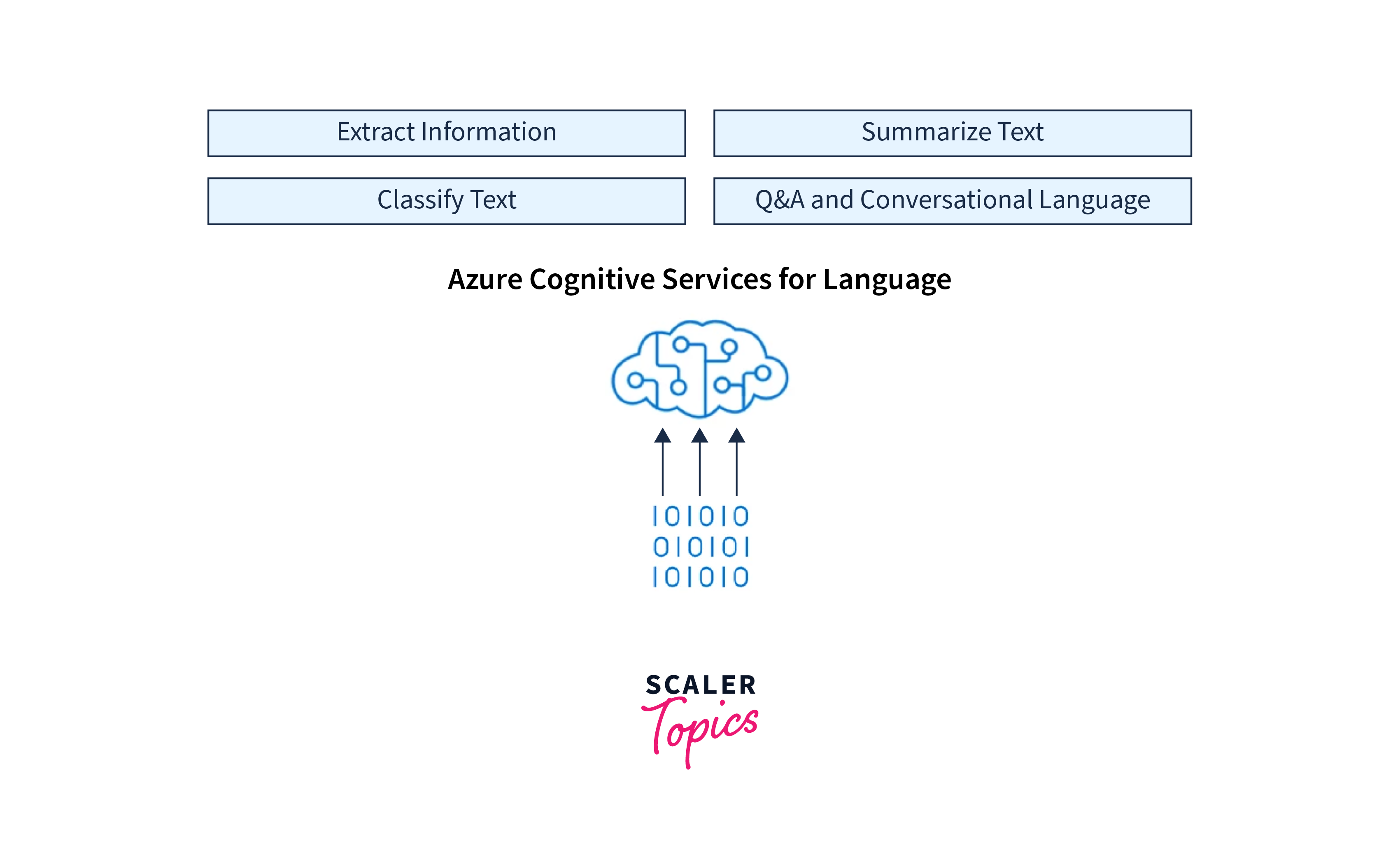
-
Enhance Healthcare Efficiency:
- Azure Cognitive Search enables healthcare professionals to efficiently search medical records, reports, images, and videos. Its cognitive skills help extract vital information like patient names, diagnoses, and medications, streamlining data access for the medical community.
-
Streamline Legal Document Management:
- Utilising cognitive search technology, a document management system may be developed to enhance legal procedures. Cognitive search can improve search functionality by examining sentiment, key terms, and entities in legal texts. h capabilities for contracts, cases, and precedents.
-
Optimize Manufacturing Knowledge Base:
- Deploy Azure Cognitive Search in a manufacturing organization to enable technicians and engineers to use cognitive abilities for effective information retrieval. This involves using text, picture, and speech recognition technology to process technical manuals, schematics, diagrams, and videos.
-
Revolutionize Education Platforms:
- To revolutionize education, make use of Azure Cognitive Search in the learning platform of the educational institution. Include the cognitive ability to effectively translate instructional materials into several languages, produce summaries and captions, and offer individualized feedback and suggestions to enhance the entire educational experience for students.
-
Drive Business Intelligence:
- Use Azure Cognitive Search to gain meaningful insights from diversified datasets in a variety of sectors. Use cognitive skills to process and analyse material more effectively, allowing for efficient data retrieval, sentiment analysis, and multilingual assistance. These integrated features aid in the advancement of corporate intelligence and the promotion of innovation.
Conclusion
- Azure Cognitive Search employs advanced algorithms to generate extremely accurate search results, ensuring that users get exactly what they need without having to go through irrelevant information.
- One of the most prominent benefits of Azure Cognitive Search is its scalability. Whether you're working with a tiny dataset or dealing with enormous amounts of data, the platform seamlessly scales to meet your needs, giving optimal performance at any size.
- The Azure Cognitive search platform reads and analyses content using AI capabilities, providing consumers with a better and more dynamic search experience.
- By easily collaborating with the greater Azure ecosystem, Azure Cognitive Search becomes a vital component in building end-to-end solutions. This interoperability ensures a uniform and comprehensive approach to data management.
- Azure Cognitive Search not only produces accurate results, but it also does it at high speed. Users all across the world benefit from rapid searches, enhancing overall efficiency, thanks to global accessibility.
- Implementing Azure Cognitive Search is not just for experts. Because of the platform's user-friendly interfaces and efficient management features, it is accessible to organizations of all sizes, even those with no technical skills.

